
想让你追我。
Solutions | Communist Party
A brief overview
The Communist Party (English: Communist Party) refers to a political party that pursues communist ideology and is established in the name of representing the interests of the proletariat (that is, the working class). The earliest Communist Party is believed to be the Communist League established in 1847.
It now generally refers to a political group guided by communism and Karl Marx and Friedrich Engels' elaboration of communism and capitalism, with the ultimate goal of pushing society to a communist society. There was a first wave after the October Revolution in 1917, and a second wave after World War II. During this period, the People's Republic of China basically established a nationwide socialist system.
In the 20th century, as an important political force, the Communist Party has influenced the world, and there are at most 25 countries ruled by the Communist Party or a party that declares itself to be a Communist Party.
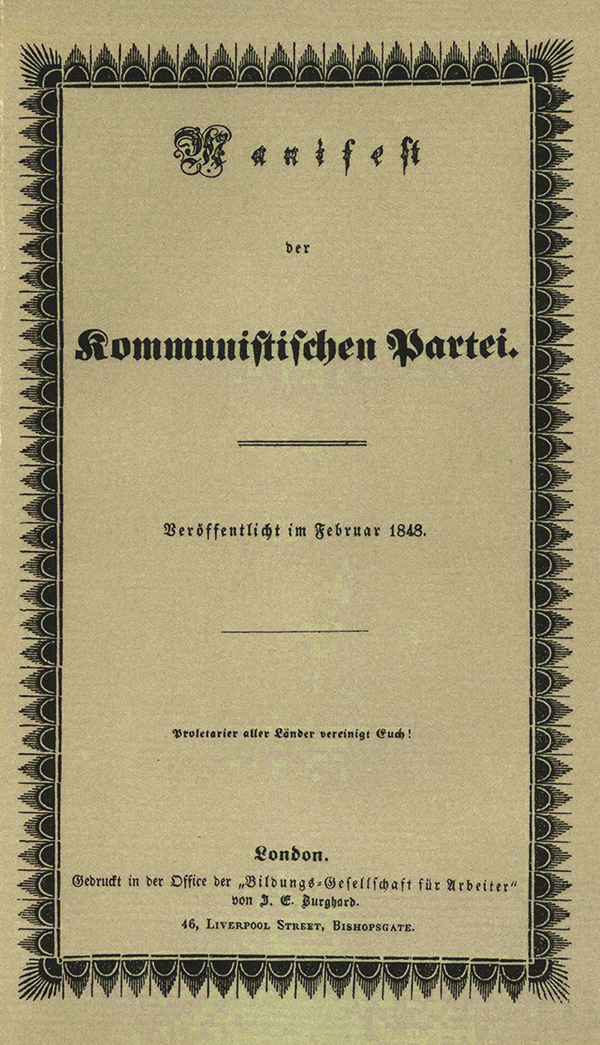
The development of the Communist Party
The large number of existing Communist parties, especially those in Europe, arose out of a massive split in the then socialist movement of the Russian Social Democratic Labour Party in the 1920s. In this split, the factions that supported violent revolution began to call themselves the Communist Party and firmly supported "Marxism-Leninism"; while the factions that supported the gradual and peaceful transition to socialism identified with Marxism and maintained the original The name of the Socialist Party or Social Democratic Party.
After World War II, these divisions developed deeper. The Socialist Party began to further revise and move away from classic Marxist theory. There have also been splits among the communist parties of various countries. Among them, the communist parties in Western Europe, represented by the Communist Party of Italy and the Communist Party of Spain, have put forward the theory of European communism, diluting the Leninist color of the original theory, and trying to get rid of the influence of Stalinism on its reputation.
The idea of democratic centralism was originally proposed by Lenin: Party members are regularly elected to elect party representatives, and then party representatives are regularly elected to elect the central leadership organization, and all party members obey all orders of the Party Central Committee. After drawing lessons from history, the Communist parties in developed countries in Europe and the United States only properly adopted democratic centralism, rather than fully adopting it; decentralizing power, the Politburo only has a part of the power. Mao Zedong, the leader of the Communist Party of China, believes that the Communist Party is the vanguard of the working class, and as the class is eliminated, the Communist Party is also eliminated. This is different from the view of Western political parties. The Western world believes that political parties are the bridge between the government and voters, and any political party may exist for a long time.
In the 1960s and 1970s, many Third World countries also claimed to be on the "socialist" road, and their leaders also established a political party system similar to the Soviet Union. However, compared with the political systems of Central and Eastern Europe and the Soviet Union, the political systems of these countries are more related to the personal abilities of their leaders and lack a relatively complete political system of the Communist Party. Therefore, although these countries are classified as communist countries in the broad sense, their political system is not strictly speaking the classic one-party communist system.
Between 1989 and 1991, a large number of communist parties in Central and Eastern Europe lost power. This process was carried out peacefully in some countries, such as Poland and Hungary, the former Czechoslovakia and Bulgaria, but in Romania and other countries, serious bloody gun battles took place. Soon, some leaders of the "third world countries" ruled by the "Communist Party" also announced to abandon the communist ideology and accepted multi-party elections, such as Benin, Congo (Brazzaville), Angola, and Mozambique.
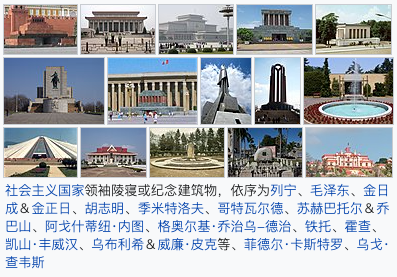
Communist Party in the world
Today, in most countries, there are communist parties (some political parties pursue communist ideology, but are not called communist parties, such as the Progressive Party of the Working People, the Belgian Workers' Party, the People's Vanguard Party, the Panama People's Party, the Romanian Socialist Party, etc.). In many countries, several communist parties coexist at the same time. For example, in Greece, there are 8 communist parties. Some communist parties emphasize the attributes of working-class political parties and are committed to establishing workers’ democratic regimes on the basis of their own democratic traditions, such as the Communist Party of Greece, the Portuguese Communist Party, etc.; The dictatorship of the proletariat” emphasizes the concept of human rights and democracy, such as the French Communist Party, the Spanish Communist Party, and the Italian Communist Party of Reconstruction.
In some eastern countries, there are also various communist parties. Among these "Communist Parties", some still uphold the Marxist-Leninist attitude towards communism and capitalism, and even launched armed struggles against the existing regime; The Republic and the Socialist Republic of Vietnam no longer implement a planned economy and implement a market economy. Some members of the Japanese Communist Party abandoned the planned economy and put forward the idea of "socialist market economy".
In addition, the Communist Party, which lost power in the midst of drastic changes, in a country dominated by the Communist Party during the Cold War era also embarked on a very different path in the 1990s. Some completely disappeared , such as the Romanian Communist Party; some imitated the former Communist Party in Western Europe , changed its program and even its name to become a left-wing party that was similar to the Socialist Party or even more inclined to neutrality, and continued to play a huge role in the country or region where it is located, such as The Hungarian Socialist Party, which was reorganized by the Hungarian Socialist Workers' Party, and the Bulgarian Socialist Party, which was reorganized by the Bulgarian Communist Party, have been in power for a long time under multi-party politics; some have adopted nationalist policies and evolved into pro-nationalist parties. The Serbian Socialist Party of the Federal Republic of Yugoslavia (now Serbia, Montenegro, Kosovo), and the Communist Party of the Russian Federation reorganized by the remnants of the Communist Party of the Soviet Union and the Communist Party of the Russian Soviet Federal Socialist Republic, which played an important role in Russian political life in the 1990s, are also considered to be relatively strong. Although some have changed their flags, they have continued to exercise one-party dictatorship for a long time , such as the Democratic Party of Turkmenistan, which was reorganized from the former Communist Party of Turkmenistan.
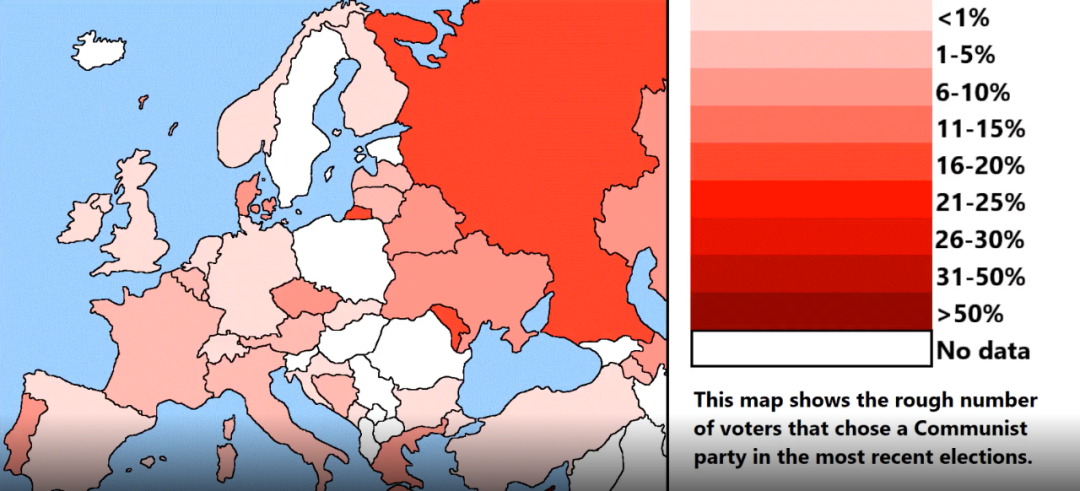
In some developing countries, there are some communist political forces with the theory of "Maoism", such as the Communist Party of Nepal (Maoist Center), Bangladesh Workers' Party, etc. Among them, the Communist Party of Nepal (Maoist Center) is very influential. The party inherited the ideas of Mao Zedong, the former leader of the Communist Party of China, on guerrilla warfare.
At present , the Communist Party is an illegal organization in the following countries : Estonia, Latvia, Lithuania, Ukraine, Kazakhstan, Turkmenistan, Indonesia, South Korea, Singapore, Malaysia, Myanmar, but there are still some of these countries that do not publicly call themselves the Communist Party but are actually Legal parties of the Communist Party exist, such as the Socialist Party of Latvia, the Socialist Popular Front of Lithuania.
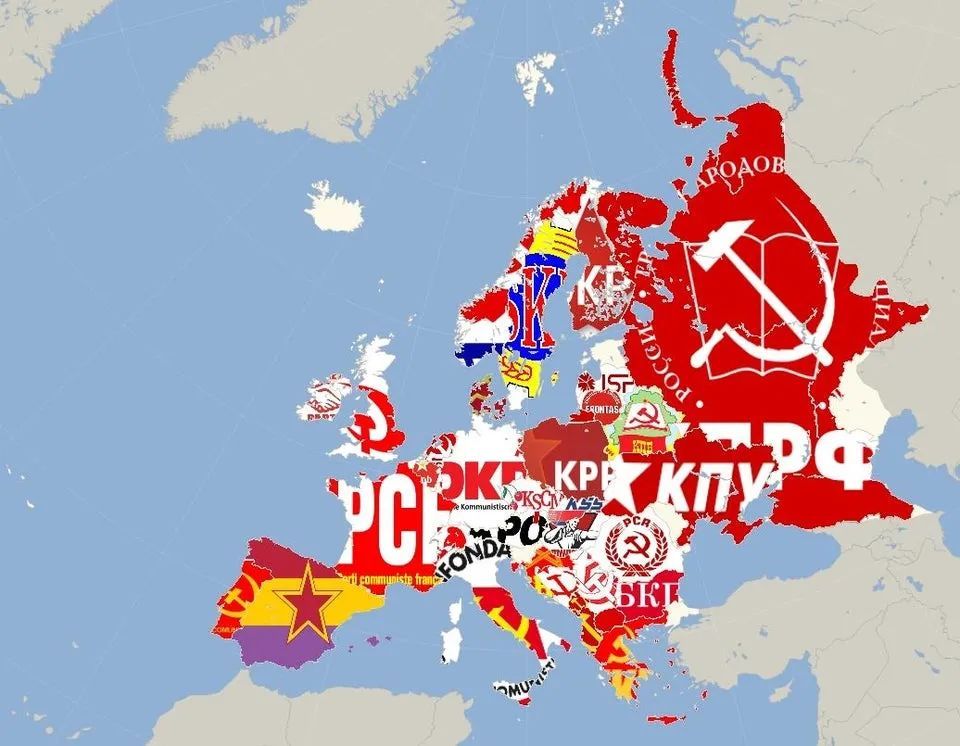
Countries currently ruled by the Communist Party
In the People's Republic of China, the Socialist Republic of Vietnam, the Lao People's Democratic Republic, and the Republic of Cuba, the Communist Party rules the country as the ruling party. Its nature is a one-party system or a one-party dominant system, in which the Communist Party completely controls the military and political power.
However, the internal and external policies of these communist parties are also very different from each other. Some of them have made theoretical modifications to adapt to the new economic situation. Typical examples are the "Deng Xiaoping Theory" and "Three Represents Thought" successively put forward by the Communist Party of China, calling these theories "the development of Marxism in the new era". In the 1990s, when the economy was extremely difficult, the Cuban Communist Party implemented some economic liberal policies, which improved the economy to a certain extent, and learned from China and Vietnam in some economic policies to gradually improve people's lives. In the program of the Cuban Communist Party, the guiding ideology of the party is expressed as "Marxism-Leninism, Marty Thought".
Since 1992, the People's Progressive Party of Guyana, the Communist Party of Nepal (United Marxist-Leninist), the Communist Party of the Republic of Moldova, the Working People's Progressive Party of Cyprus, the Communist Party of Nepal (Maoist), the United Left of San Marino, the Communist Party of Nepal (2018), etc. The Communist Party of a party-system country successively came to power through democratic elections.
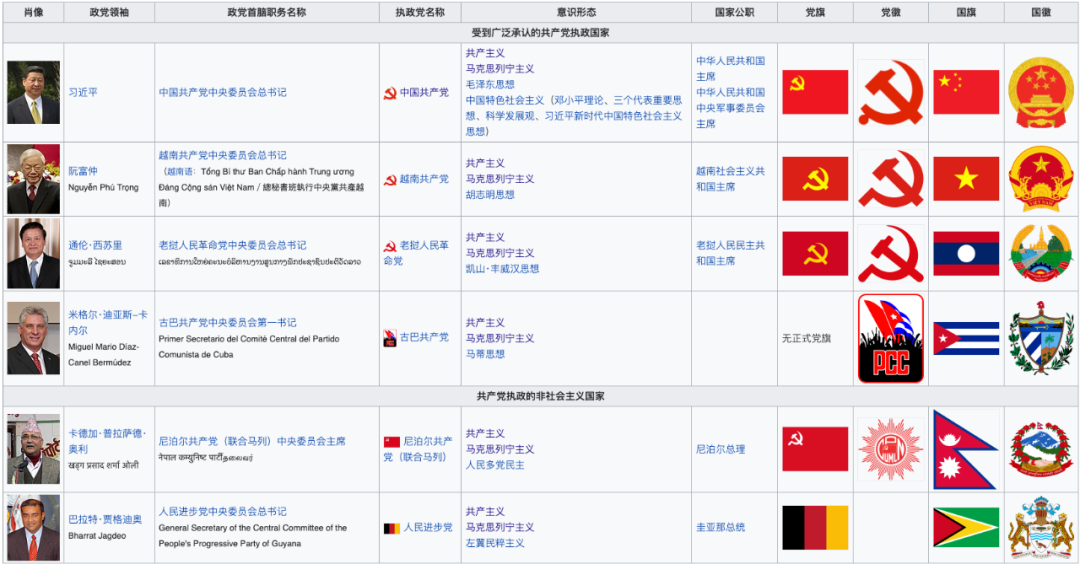
country in power in the past
Since the founding of the Democratic People's Republic of Korea, it has been a socialist country under the one-party dictatorship of the Workers' Party of Korea. However, since the Workers' Party of Korea has deleted all the clauses and words on Marxism-Leninism and communism in the party constitution and constitution, and changed to Kim Il-sung-Kim Jong-ilism as the "sole guiding ideology", some scholars believe that the Workers' Party of Korea is in the definition of It no longer belongs to the Communist Party.
noun interpretation
Marxism:
Marxism (German: Marxismus) is an economic, political and social worldview developed from historical materialism, dialectics and a critique of capitalism. Marxism predicted that socialism would emerge from revolution and return the means of production to collective hands, distribute profits according to the "actual labor" of each individual, and plan production according to "demand" rather than profit. Marx also said that after socialism, communism will be born, with each doing his best and each taking what he needs as a production model, becoming a society without classes, borders, currency, and private property rights.
Marxism-Leninism:
Short for Marxism-Leninism or Marxism-Leninism. Strictly speaking, it refers to the school of Marxism developed by Lenin. The essence of features is as follows: Guidance on the necessity to overthrow capitalism by force through proletarian revolution; socialism as the first stage towards communism; necessity for the existence of a vanguard party leading the proletariat. After the Sino-Soviet relations were at odds, both the Soviet Union and the People's Republic of China stated that only they had inherited Marxism-Leninism. Three other existing socialist countries (Republic of Cuba, Socialist Republic of Vietnam, Lao People's Democratic Republic) also adopted Marxism-Leninism as their official ideology.
communism:
Communism (English: communism; Latin: communismus) is a political ideology of sharing economy combined with collectivism, advocating the elimination of private ownership of the means of production, and the establishment of a public ownership of the means of production to the best of their ability, and to carry out collective production. , to build a classless society through class struggle. Under this system, land and capital property were jointly owned by the people, and money and the state were abolished.
socialism:
Socialism is a political, social, and economic philosophy that encompasses various economic and social systems characterized by the means of production (natural resources, human, capital, and entrepreneurial talent) shared by society. Among them, socially shared means of production can be achieved through state ownership, collective ownership, worker autonomy, labor cooperation and even citizen shareholding. Although there are thousands of types of socialism, and no one definition can generalize them, each of them believes that the means of production should be controlled by society.
Socialism can be divided into two types according to whether there is a market or not. Socialism without a market eliminates the factor market and money, and the law of value under capitalism no longer exists. This type of socialism seeks to avoid capital accumulation, waste and financial crises caused by the pursuit of profit. In contrast, so-called market socialism emphasizes the preservation of the role of money, factor markets, and even the profit motive in socially owned enterprises and the distribution of capital. The profits of these enterprises can be directly controlled by employees, or they can be distributed to the whole society in the form of social dividends.
Democratic Socialism:
Democratic socialism is a political ideology that combines modern democratic constitutionalism with a socialist economy. Democratic socialism is also a fairly broad concept, as there is a lot of controversy over what is "democracy" and what is "socialism". "Democracy" usually means universal suffrage, multi-party system, judicial independence, political freedom, one-party dictatorship against fascism and Stalinism. The socialist economy requires public ownership of the means of production, and the economic model can be a planned economy, a participatory economy or market socialism. In the actual governance process, many democratic socialists have allowed diversified economic development without completely banning the market economy, and focused on providing good welfare guarantees and redistribution of wealth.
21st Century Socialism:
Socialism of the 21st century (Spanish: socialismo del siglo XXI) is a school of socialism introduced by Dietrich in 1996 as "20th century socialism" in the form of Marxism-Leninism Failure to address pressing human problems such as poverty, hunger, labor exploitation, economic oppression, sexism, racism, destruction of natural resources, and the lack of true participatory democracy. "21st century socialism" has elements of democratic socialism, but is mainly similar to Marxist revisionism. Leaders who advocate "21st century socialism" include Venezuela's Hugo Chavez, Argentina's Nestor Kirchner, Ecuador's Rafael Correa, Bolivia's Evo Morales and Luis Inacio Lula da Silva of Brazil. Due to the unique historical conditions of Latin America, "21st century socialism" is very different from the previous practice of socialism in other countries, mainly in the fact that "21st century socialism" tends to implement a decentralized participatory economic model.

Long live Chairman Mao
Like my work?
Don't forget to support or like, so I know you are with me..
Comment…